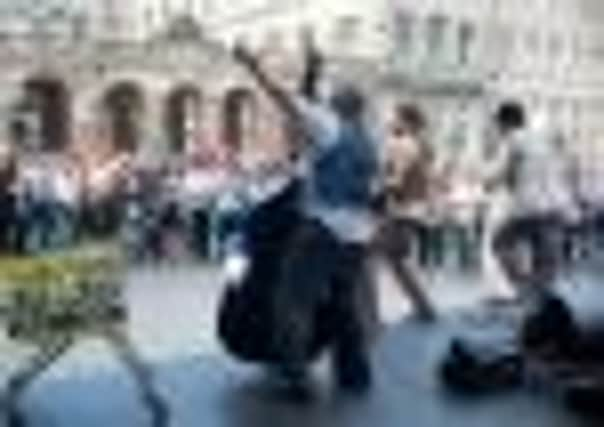Tim Cornwell: Welcome – please feel free to make a stushie


You’re on the doorstep of the greatest arts festival in the world. Like most visitors, however, you will be intimidated by the sheer size of it.
Your gathering was supposed to include the culture ministers of 40 countries. There are delegates from Brazil, Japan, Russia and the United States, through to Poland and South Africa – whose support has been vitally important this festival – and ranging to Saudi Arabia, Bangladesh, Tanzania and Zambia.
Advertisement
Hide AdAdvertisement
Hide AdThe Edinburgh International Festival was launched in 1947, by Austrian impresario Rudolph Bing, to relaunch and reunite the culture of post-war Europe – all Europe – in an enlightened act that deserved to be encouraged by people like you. That included, very quickly, orchestras from Germany. Bing loved Edinburgh’s castle, but when he first came he once, I’m told, spoke of Edinburgh as being in England. Please don’t make that mistake.
Enjoy the Festival Fringe – it’s crazy, and there are more than 2,000 shows. However, remember that this had nothing much to do with you. That festival, for which we’re now most famous, was started not by governments, but by a small group of theatre companies who just showed up and put on their shows.
We welcome your support and your showcases, which give a vital international flavour to the line-up here, and for theatre, in particular, government support can be a lifeblood. But in Edinburgh, at the Fringe, people just show up, often losing a lot of their own money, but doing exactly what they like. It’s not organised, and not censored. There’s masses of nudity, swearing, and sacrilege on a grand scale, of the type that would make Ai Wei Wei or Pussy Riot blush.
Arthur’s Seat is in front of you. It’s hosting something call The Speed of Light this year. It’s a bit baffling, but fairly cool: an outdoor show in which hundreds of people in suits covered in lights do formation running over the hill, and the audience walk among and above them carrying light sticks.
It’s quite an experience, but best done by a junior official, especially if it’s raining. If the weather is more reliable in your country than here, and you have a good hill, please consider buying it for export. In fact, that would be welcome for any of the shows you see in Edinburgh.
2008: Macbeth, by one of the Polish companies here this year, is already talked of as one of the highlights of the Edinburgh International Festival, in a building once used for agricultural exhibitions, near the airport. There’s another one, also Polish, in the Old Quad, which I would unreservedly recommend. But one way to see it is just take a flyer and follow it to the show.
A month or so ago, the “hot topic” for your summit was “how the arts can survive global austerity”, and where funding for culture and the arts will come from at a time of cuts. Now it appears the central theme is “to debate the power of culture in forging relationships between nations”.
Your struggle may be to make any of this interesting, in the conference context. Fifty years ago, there was an amazing writers’ conference in Edinburgh, which turned into four days of really hot talk, after one writer said modern Scottish writing was rubbish, and another said homosexuals couldn’t experience true love.
Advertisement
Hide AdAdvertisement
Hide AdRemember that all publicity is good publicity, so please stand up and speak your mind with something provocative and edgy. For local headlines, feel free to denounce the Festival as a “cesspit of immorality”. It’s years since anyone has done that and we miss it. Help create what we refer to in Scotland as a “stushie”, because arts generally thrive on it.
If you want to help us out in Scotland, ask about Creative Scotland. The issue of arts and global austerity has hit home here pretty hard, but it’s been much worsened because Scotland has an arts agency that’s lost the confidence of the arts community.
This week the director of a leading Scottish company, which is bringing a big show to the Festival, was the latest to warn publicly about its policies, while the director of our National Theatre of Scotland backed him up. The problem is that after months of this, there’s no sign of any real change in course. What would you suggest?